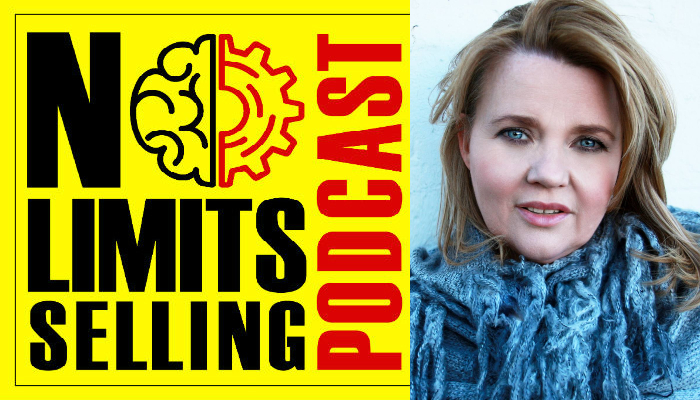How To Remove Limiting Beliefs From People
On Episode 134 of The No Limits Selling Podcast, we have Rúna Magnúsdóttir, an internationally awarded leadership coach and mentor, co-founder of #NoMoreBoxes Movement, the Antidote to Division & Black & White thinking, and co-creator of The Money Box Game the virtual reality game that expands challenges and changes your social conditions to money and wealth.

Contact Rúna:
[EDITOR’S NOTE: This podcast is sponsored by No Limits Selling. It is a fun, fast-paced podcast that delivers hard-fought business advice that you can implement today to improve your sales and performance]
Interested In Our Real Estate Coaching Services? Explore Our Website: Link
Feeling Not Well Today? You Can Use Our Mindset Boosters App To amp Up Your Mood: Link
Find us on Social Media:
LinkedIn | Facebook community | Instagram
Like what do you listen to? Subscribe to our podcast!
Ready to become fearless? We can help you become fearless in 60 days so you accomplish more in your career Schedule A 15 min Call with Umar
Summary
Introduction and Background
The podcast begins with an introduction by the host, Umar Hameed, who welcomes Runa Magnusdottir to the show. Runa is asked to pronounce her last name, which she explains is Icelandic and means "daughter of Magnus."
The Start of a Movement
The conversation then moves to an event that took place in March 2018 at the UN Headquarters. Runa's partner, Nicholas Haynes, was asked a question that sparked the beginning of a movement. They were in a taxi from the UN to JFK when they had an "aha" moment and decided to create a movement, write a book, and create a safe space for people to explore their "boxes" or limiting beliefs.
Normal Boxes Breakfast Club
Six months after their taxi driver, they held their first event in partnership with the Icelandic Embassy in London. They gathered leaders in the UK market for gender equality and had their first "Normal Boxes Breakfast Club" where they discussed these issues.
The Concept of Boxes
Runa and her team of neuroscientists, energy people, and professionals delved deep into the concept of "boxes." They found that boxes can be good as they can make us feel safe, secure, and accepted. However, they can also be limiting and suffocating if they are not questioned and examined.
The Lack of Lamb Story
Runa shares a familiar story about a young couple preparing a lamb dish. The woman cuts the bone off the lamb because that's what her mother and grandmother did. When they ask the grandmother why she did that, she reveals that she didn't have a big enough pot in those days. This story illustrates how unexamined practices can continue for generations without anyone questioning why.
Realizing You're in a Box
The first step to breaking out of a box is realizing that you're in one. Runa and her team create a safe space for people to have the courage to open up their boxes and start a conversation about why they do the things they do. This process can be challenging but is necessary for growth and change.
Conclusion
In conclusion, the podcast with Runa Magnusdottir delves into the concept of societal "boxes" or limiting beliefs that confine and restrict individuals. The conversation traces the inception of the #NoMoreBoxes movement, which Runa co-founded with Nicholas Haynes, aiming to challenge and break down these societal constructs. They discuss initiatives like the "Normal Boxes Breakfast Club" and their book, which provide safe spaces for people to explore and question their boxes. The podcast emphasizes the importance of self-awareness and courage in recognizing and confronting these boxes, illustrated through anecdotes like the "Lack of Lamb" story.
This story symbolizes how unquestioned practices can perpetuate through generations, highlighting the need for introspection and dialogue for personal growth and societal change.
Questions & Answers
What is the #NoMoreBoxes Movement?
Who is Runa Magnusdottir?
What is the "Normal Boxes Breakfast Club"?
What is the significance of the "Lack of Lamb" story shared by Runa Magnusdottir?
How can I break free from my own "boxes"?
Don’t miss this opportunity to transform your real estate career with one-on-one coaching. As an experienced real estate coach, I, Umar Hameed, am dedicated to helping you unlock your full potential and achieve your real estate goals. To learn more about who am I and my clients ↓
If you’re ready to take the next step, book an appointment with me today and begin your journey toward success in the real estate industry.
